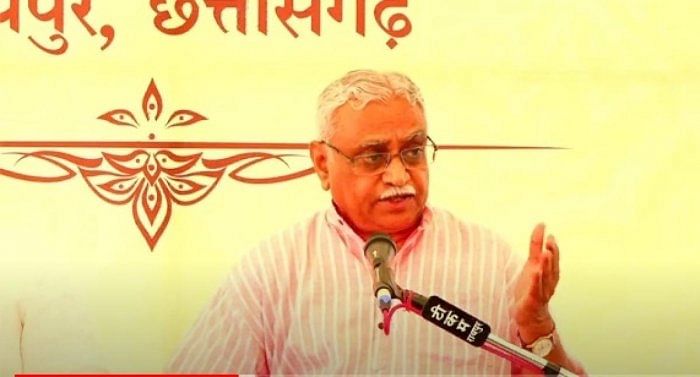
A senior RSS functionary has said that the "unique spirituality-centric" view of life in the "rashtra" (Indian nation) is known by the name Hindu globally, "which is why this Rashtra is Hindu and its adjective sanatan (eternal)".
In a piece titled "Hindu Rashtra: Rashtra is Hindu and Sanatan Its Adjective" in the RSS-inspired weekly Organiser, the Hindutva organisation's joint general secretary Manmohan Vaidya said the term was not coined by us but those who viewed the country from outside christened this "uniqueness" of ours to differentiate us as Hindu.
He said many treatises or documents (smritis) that inform the attitude and behaviour of the society were composed here from time to time and for the nation of current times, its Constitution is the latest "smriti".
"The provisions for modifying this Constitution are enshrined within the Constitution only. The tact of periodically renovating the structure while retaining the base of the foundation is what Bharat has championed. It has ensured our civilisational continuity and renewal and it is this which makes it Sanatan," he wrote.
In the Hindu tradition, smritis are a term used for several ancient religious texts.
The RSS view of India as a "Hindu Rashtra" is criticised by its critics for being not in sync with secularism.
However, the organisation insists that the term envisions a cultural nation and is different from state with geo-political boundaries, a point made by its general secretary Dattatreya Hosabale during a recent conclave attended by its senior office-bearers and those from its affiliate bodies.
"When seen from this perspective, there is no doubt that Bharat is a Hindu rashtra," he said.
Vaidya's article is aimed at expounding on Hosabale's comments.
In his piece, he underscored the organisation's appreciation of different faiths by saying that Indian society believes that truth or God is one but can be realised through different ways and religious practices.
Seeing unity amid diversity and appreciate and celebrate it is "very essence" of the Indian way of life, he added.
"One's innate divinity may be manifested by walking different paths (referred to as religion or worship) as conducive to one's unique nature and interest and all paths are equal, acceptable and respectable. These paths may be referred to by different names, and with time newer paths may emerge. The old and the new are all welcome here. This is the defining," he said.